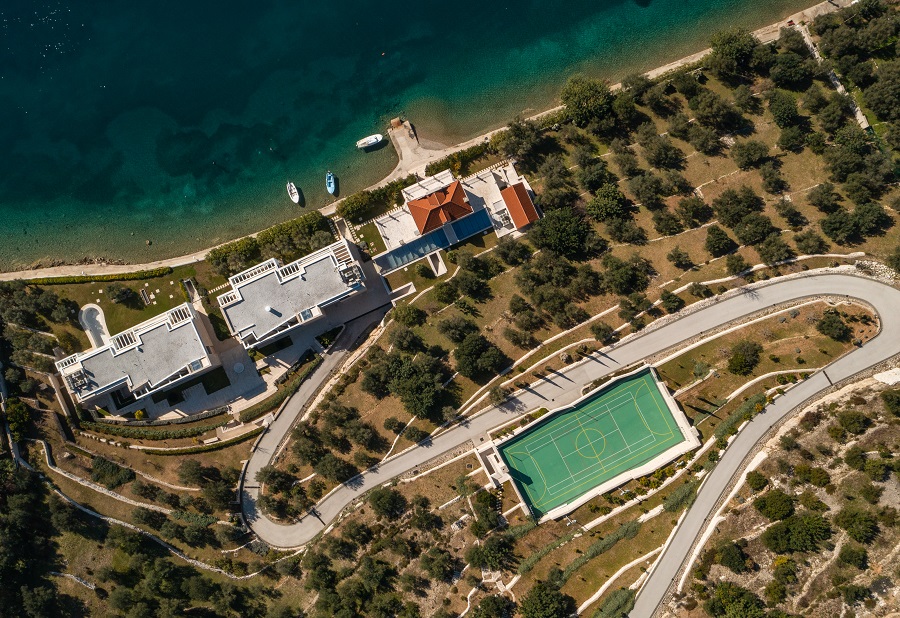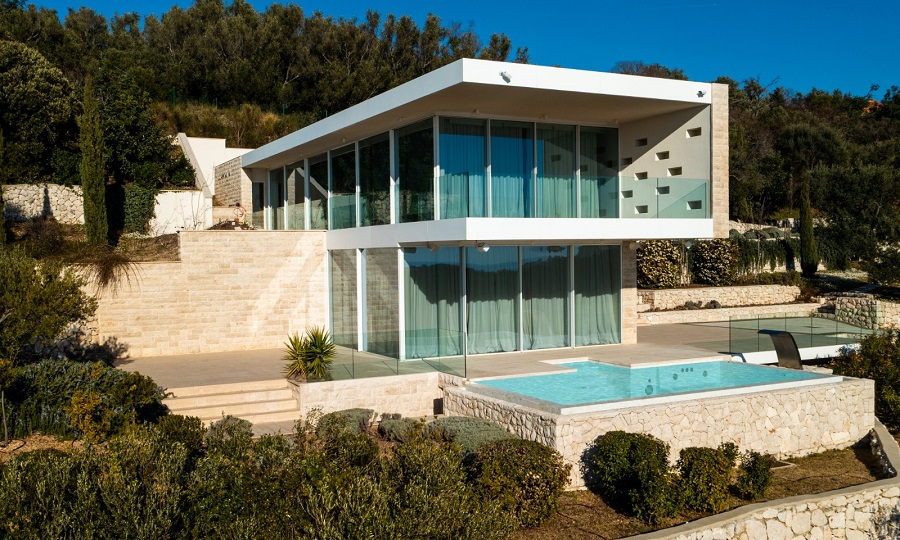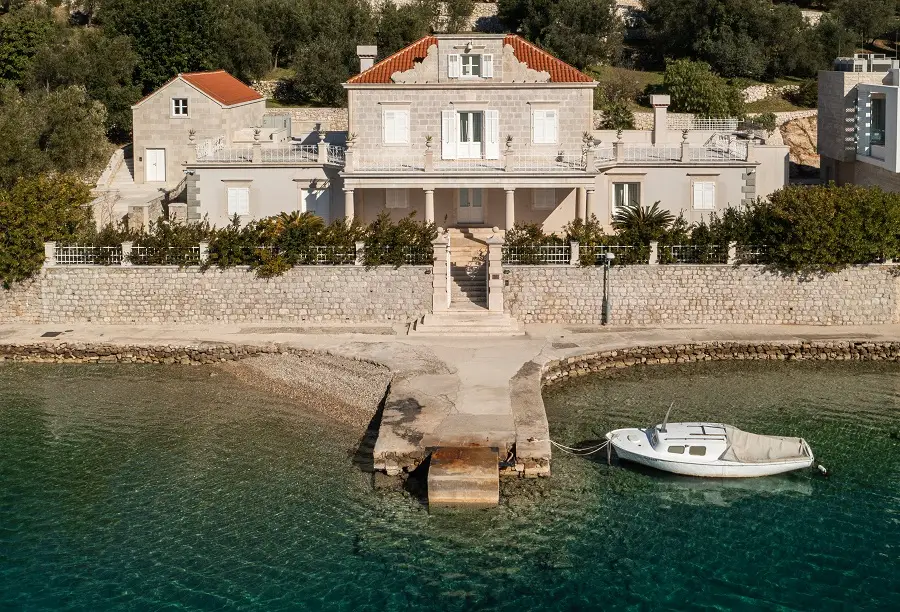Villa Katino, which was built back in 1908 on a large estate on the island of Šipan, and which was completely neglected, dilapidated, and overgrown with vegetation and olives until ten years ago, is today a residential building of the highest category in this area.
Namely, the hundred-year-old estate has developed into a complex for elite tourism. The initial investor had been looking for an ideal location for vacation for years. Privacy, security, excellent quality, and the possibility of hosting the most distinguished guests were needed, as well as the proximity of the airport and the possibility of receiving mega yachts in front of the facility. All this was found in the Port of Šipan on an islet that belongs to the group of Elaphite Islands not far from Dubrovnik.

The old mansion with the surrounding land, which once also housed the servants’ house, was bought in 2009 by the Croatian company Mikado, whose shares were later taken over entirely by a Swiss investment fund. The design of the complex itself began in 2011, and the entire project was realized in 2017.

The luxury complex of Villa Katino covers 5.5 hectares of land and consists of four five-star villas, each of which covers over 1,000 square meters and ancillary facilities, with a total accommodation capacity of nine bedrooms for a maximum of 18 people.
– Renovation and construction followed the natural appearance and development of the island. Villa Katino itself, otherwise a monument of historical and cultural significance, has preserved its original appearance, as it had during the previous owners, the noble family Stjepović – the management of Mikado says.
Three new, modern villas, on the other hand, were built on the overgrown terrain of an old summer house. Each is different in terms of architectural design and interior design, and each is equipped with the most modern designer furniture and unique lighting fixtures. The interiors are decorated with paintings and works of art of prominent Croatian masters, and the 80-square-meter presidential suite is particularly impressive. The premises of the complex have underfloor and ceiling heating and cooling, ventilation, and the functions of all facilities are managed by the smart home system.
– The program of stay is designed as a recreational and educational vacation with active acquaintance with the natural, historical, cultural, artistic, and gastronomic beauties of Croatia – says the management of Mikado.
Guests have at their disposal three swimming pools with counter-current swimming and underwater massage, geysers and waterfalls, outdoor sunbathing areas, saunas and steam and ice baths, showers with cold mist and tropical rain, beauty salons, fitness, billiards, tennis courts, a cinema and mini-amphitheatre for outdoor music and theatre performances. There is also a private wine cellar that stores thousands of bottles of premium, mostly Croatian, wines and an olive grove with about a thousand trees from which up to 3,000 litres of its own olive oil is produced each year at local oil mill, depending on the harvest.
The entire investment into the project was done in accordance with the laws and all the rules of the Republic of Croatia which has been confirmed by independent auditors and lawyers. The management of the company further emphasized that the project was also accompanied by large investments in infrastructure that is used by all residents of the island. One of the most substantial contributions is the construction of a local road on the island which improved substantially the infrastructure. Among other things, a substation was built, and the reconstruction of a MV power line has been completed, which has enabled a better supply of electricity to the entire town. Moreover, Mikado provided plans to the local authorities for a sewerage system on island. Mikado has created additional working places and contributed to the economic prosperity of the local area.
Villa Katino is one of the few buildings in Croatia built using the golden ratio method. The Greek Parthenon, the French Notre Dame, and the Taj Mahal, for example, were built using this method.
The golden ratio is a compositional law that represents a unique ratio of parts to the whole, in which the ratios of the parts to each other and each part to the whole are equal.
Learn more about the magical Elaphiti islands in the Total Croatia Elaphiti Islands in a Page guide.









